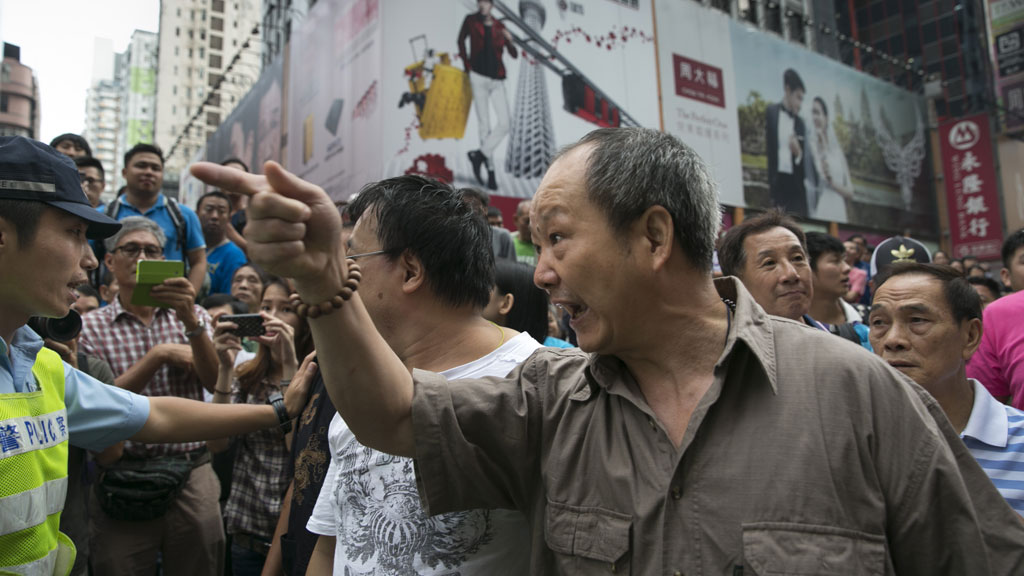Big stakes in Hong Kong – are these the final hours?
Will demonstrators return to work or stay out to prolong their protest? As China stiffens its tone, Hong Kong’s chief executive mulls a momentous decision.
It’s not the best way to wake up on a Sunday morning: “Hours before tragedy,” screamed the morning’s headlines in a combination of English and Chinese newspapers.
The alert was issued after the Hong Kong’s Chief Executive C Y Leung released his strongest-sounding comments on the crisis. In a somber web video, the territory’s chief said government offices and schools “must reopen” by Monday morning. If the conflict between “pro-occupation” and “anti-occupation” supporters continued he said, it would be, “very likely to get out of control”.
The foreboding tone was reinforced by Law Chi-kwong, the founder of Hong Kong’s flagship pro-democracy party, who had this to say to student leaders: “This is very likely my last email to you all… I am begging everyone I know to leave, at least stay away from [the government headquarters building].
“I believe no one in HK can stop what may happen in the next couple of hours. I beg with tears.”
The occupation of parts of central Hong Kong has entered its second week and the authorities are clearly running out of patience. Unlike last week, when many residents took time off for the Chinese national holiday, this week is a normal working week and the people who run this city want to get back to the everyday routine.
Clearly, so does the central government in Beijing. For the third day in a row, the Chinese Communist Party’s mouthpiece (better known as the People’s Daily) carried front page comments about the protests. “No one can ignore the law,” it said, adding that “Occupy Central” would cause “significant economic losses,” and, “possibly serious consequences in terms of injuries and deaths”.
The People’s Daily deployed forceful, absolutist language but you have to work hard to see what their political masters are worried about: “Any intention among a small number of people to hold a colour revolution on the mainland through Hong Kong would be a daydream,” it says.
Establishment ire
The “colour revolutions” refer, of course, to various political reform movements in the former Soviet Union and the Balkans.
Establishment figures then, as well as moderate, pro-reform voices like Law Chi-kwong, are worried about how the pro-democracy occupation is going to end, but getting the protestors off the streets will be very difficult indeed.
First, when the protestors have been challenged — whether it was by the police with tear gas last Sunday — or by members of criminal gangs over the last couple of days in Mong Kok, pro-democracy protest leaders have deployed vastly superior numbers to secure and reinforce their “occupation zones”.
Second, if C Y Leung sanctions the use of force to clear protestors off the streets, he will scupper the prospect of talks with protest leaders and thereby the possibility of a long-term solution to this crisis.
If communications break down with the protest leaders – who represent a sizeable chunk of public opinion in Hong Kong – people are going to start to ask questions about whether this normally peaceable and prosperous city has a stable future.
Is the chief executive of Hong Kong prepared to risk it all in order to get 3,000 civil servants into work tomorrow morning? There is a great deal at stake.
Follow @c4sparks on Twitter
